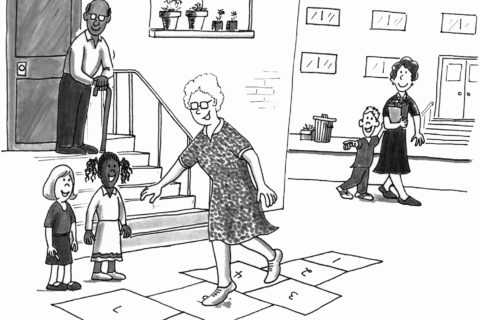I have not been able to conclude whether Elizabeth Holmes’ trial should change Silicon Valley or is it an opportunity to tell Silicon Valley’s story and what makes it tick. I hope it is the latter.
With 20 years of experience as a founder/entrepreneur of a technology company in Silicon Valley, raising venture capital and taking my company public, I empathize with Elizabeth Holmes.
Young people’s dreams come true here, but at a cost. What does it mean when we say 90% of startups fail?
After an entrepreneur has staked her pride, her personal life, her prime professional years on a startup, failure is the supreme punishment. The cost of failure is emotional and professional — it is not mere statistics.
So why do we still keep starting companies here?
It is the hope, the determination, and to prove that, “The very best founders refuse to give up; refuse to let their company die; refuse to lose belief in their product and their vision”, per Silicon Valley startup incubator YCombinator.
Yet, the prosecutors in Theranos case, repeatedly proclaimed, “Elizabeth Holmes refused to let the company fail!”
Silicon Valley venture capitalists (VCs) and entrepreneurs make an implied contract. They refuse to go to court. Millions of dollars get made and lost here. The relationship between a poor entrepreneur and a VC with deep pockets is asymmetric. One is looking for returns on investment and the other wants to fulfill her promise to herself. Both sides tend to be self-critical when things don’t pan out.
VCs do not sign a non-disclosure agreement nor put a non-compete clause when they invest in a startup. Yet founders disclose their proprietary information, technology and closely guarded strategy, to them, in the hopes of convincing the VCs of their unique proposition, and why they will succeed. ”It’s rare for the founders of a company to sue their financial backers,” said Paul T. Friedman, a partner at VC firm Morrison & Forester in San Francisco.
Similarly, Silicon Valley investors do not sue entrepreneurs that they suspect of wrongdoing. They understand the difficulties of inventing something new and the risk of implementation. Benchmark Capital, a Silicon Valley venture capital firm, got a bad rap for suing Uber’s ex-CEO Travis Kalanick.
But there are deeper underpinnings of how business is conducted in SV. In an op-ed for the Washington Post in 2020, George Shultz, Regan’s Secretary of States — a Theranos board member, stated, “Dec. 13 marks my turning 100 years young. … I’m struck that there is one lesson I learned early and then relearned over and over: Trust is the coin of the realm. When trust was in the room, whatever room that was – the family room, the schoolroom, the locker room, the office room, the government room or the military room – good things happened. When trust was not in the room, good things did not happen. Everything else is details.”
That is also how Silicon Valley works — based on mutual trust, between the CEO, management and investors.
I did not know Holmes personally, but her courtroom appearances were carefully orchestrated— including dressing up in serious business attire, walking into the courtroom flanked by her mother and partner Evans. But most impressive was her decision to testify in her own defense.
In running my business, I too was deposed and had to defend my company in a jury trial. My attorneys prepped me. My opinion of Holmes was that she was an apt witness. She was non-evasive. And under cross-examination, she resisted explaining herself. She wisely trusted her own attorney to do the explaining on her behalf. Trusting people to do their job is a sign of good leadership. The defense lawyer implied she let experts in her company do their jobs — not without supervision, but without getting into their knickers. Trust also got her in trouble when she engaged in a personal relationship with her COO. But she accepted responsibility nevertheless.
Because Holmes could convince prestigious people to join the Theranos board, her company was attractive to prospective investors. Even though Brian Grossman of PFM Fund testified against her, he said his due diligence showed problems, but he still chose to invest — perhaps the big names were the draw.
Finally, I question if Theranos’ board took its fiduciary responsibility seriously enough. If Holmes was charming and deceptive, unethical and controlling, the board could fire her. But they did not and instead, she took the entire blame.
My good friend, the retired CEO and Chairman of Varian Medical Systems, Dr. Dick Levy, was invited by Holmes to join the board of Theranos in 2016. After spending 10 hours with her, he concluded, “She totally underestimated the time it takes from proof of principle to commercialization of a product.” Instead of accepting her offer, he encouraged her to hire an experienced CEO and herself become the executive chairman.
According to Dick, “there are now at least 16 companies offering blood analysis from a single drop of blood. She inspired that industry.”
That is Silicon Valley. Companies come and go, but Silicon Valley goes on forever.








Rick DeGolia
Vinita, I think that Holmes did engage in trust and she sought to have other, very influential people defer to their trust in her. She was very good at that effort; however, there is a huge difference between providing a product or service where customer trust is life and health dependent. I believe that she had a very high bar regarding her confidence in the veracity of what she claimed. She didn’t take that dependency sufficiently seriously and for that failure she caused great injury to many people. Not just a loss of money for investors, which is par for the course in Silicon Valley, but her solutions and her assertions were too dangerous without a higher level of responsibility. That failure made her guilty to a degree that you don’t acknowledge in your piece.
Prakash Paranjape
Very nice article.
Vijay K Gupta
Vinita, your perspective on this case reflects the fact that you have been in Holmes’ shoes before–as an entrepreneur trying hard to create a successful startup.
Now our legal doctrine says that a defendant has the right to be tried by a jury of their peers. In this case, what is the likelihood that at least a few members of Holmes’ jury are truly her peers–in the sense of having been in her shoes as entrepreneurs?
vinitagupta
I would not have been chosen to serve on her jury.
Deepak Bhagat
Very well written Vinita! Did not know there are 16 similar companies inspired by her..
– Deepak
Aarti Awasthi
Hmmm….. Thought provoking..